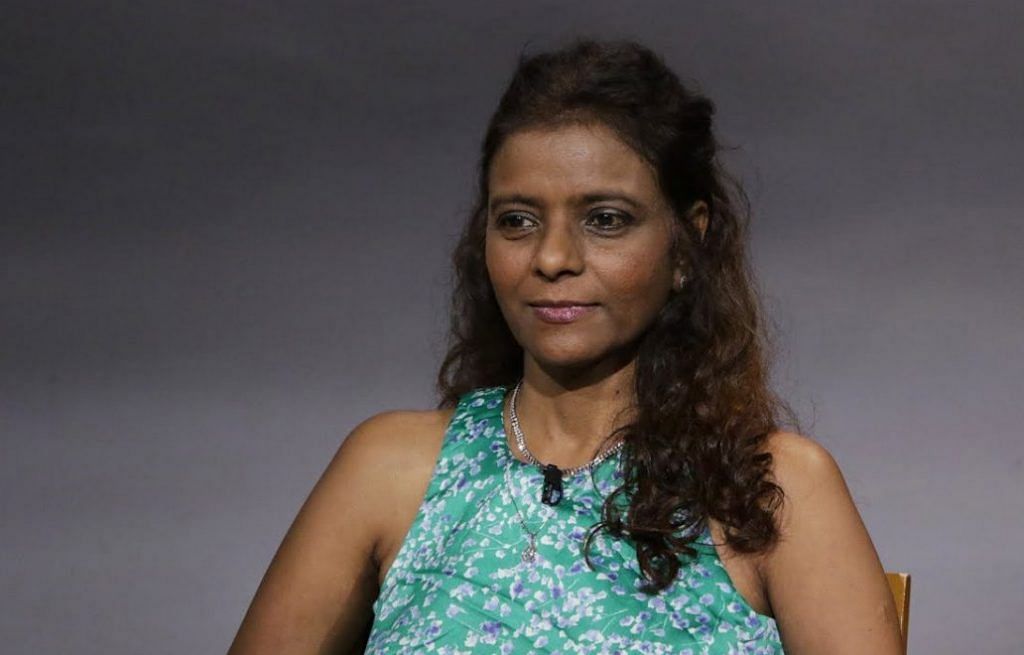Author’s mother is still hounded by upper caste neighbours in Andhra, while Indians in the US also frown upon ‘untouchables’ like her family.
Mumbai: Sujatha Gidla’s Twitter bio is as no-frills and to-the-point as they come. It identifies her as “as a conductor in the New York City subway. Recently I published a book Ants Among Elephants”.
What it doesn’t tell you is that Gidla has received high praise and international acclaim for this recently released part-novel, part-memoir of her family’s struggle with caste and untouchability. Sadly, all these struggles are not in the past – even today, back in India, her mother is fighting a silent protracted battle on caste lines with her neighbours.
In a telephone interview, Gidla told ThePrint that her mother lives in an apartment building in Kakinada, a coastal town in Andhra Pradesh, where everyone in the neighbourhood is upper caste. The neighbours have been trying to drive her out of the building by claiming illegal alterations have been made to her apartment.
“There is blatant casteism in India. It exists in the cities too. It is still very much a problem, and I find it shocking that others don’t see it,” Gidla says. “My brother-in-law’s family in Hyderabad was looking for house help. Although the lady they hired was emaciated and in need of a job, they had to hide their caste, fearing she would refuse to work for them if she found out her employers were a family of untouchables.”
Born in Andhra Pradesh, Gidla moved to America in 1992 at the age of 26 to work in the booming software industry. However, she says she never really enjoyed the job. In 2009, Gidla was laid off from her bank job in the midst of the economic downturn, after which she took up the job at the New York subway.
She says she feels liberated and caste-free in America…until she comes into contact with Indians there. “I wrote a book that got international acclaim. Naturally, you expect that your family will want to talk very proudly about it to people they know. But my sister, who lives in a New York suburb has not been able to tell her friends in the Indian society,” Gidla reveals.
“My niece wanted to put up a picture about the book on Instagram, but her parents expressed concern that others will start identifying them as being from an untouchable family.”
She feels that the situation has worsened under the Narendra Modi-led government at the Centre; she says she has seen caste violence connected with the Bharatiya Janata Party (BJP) and Hindutva being on the rise in Andhra Pradesh. While Gidla thinks a certain need for revolt has created the space for Dalit and OBC leaders such as Jignesh Mevani and Alpesh Thakor in electoral politics, she is unsure of how much they might be able to achieve.
“They are young and idealistic, but no matter what you are, what you can do is limited by constitutional framework. They may not become corrupt or pretentious, but they will have to succumb to the pressures of being associated with a mainstream political party,” Gidla says.
“Everyone is jumping up and down about their victory in the Gujarat elections, but I would like to wait and see.”
Gidla says she enjoys her job with the New York City subway, working with people from Eastern Europe and third-world countries.
“It feels like being on a university campus, and reminds me of my days at IIT-Madras. I like it very much,” she says, recalling her days as a researcher in applied physics on an ISRO-funded project in the southern metropolis.
“Although it is physically strenuous and requires an almost military-style discipline knowing that if I am not on the train, it won’t run, the work gives me a great deal of satisfaction – of rendering a service that is so useful to people.”
